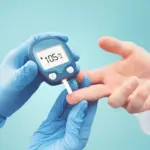When you fill up a bucket to the top with water it will start to overflow. Whilst not a perfect analogy this concept comes to mind when one considers the following two trends. The drug quetiapine (Seroquel) is now the “prescription drug of choice” on the street. There has been an over 200% increase in its prescription rate over the decade to 2011. With all drugs used to affect the mind there will be abuse. The more frequently it is prescribed the bigger the likelihood of this happening.
When one takes a dispassionate look at what is going on in mental health, one would have to say that what we are doing is not working.
On one hand we are constantly told there is a “crisis”, that people are being “failed” by the system and that there is a lack of funding to assess and treat people.
On the other hand there has been over the decade to 2011, a 58.2% increase in dispensing of psychotropic drugs in Australia. This includes a near doubling of prescriptions for antidepressants, a trebling of use of antipsychotics (such as quetiapine) and a 72% increase in ADHD drugs.
It is a given that the more of these tablets that are prescribed, that more will be “diverted”. This means either used by others or on sold. The previous street favourite was alprazolam (Xanax). This drug is being withdrawn from the Australian market ahead of new restrictions around how it can be prescribed. Generic versions will remain on the market.
But clearly the street market has already voted with its feet.
So lets get back to the issue of mental health. How do we reconcile the spectacular growth in prescribing with the mental health crisis? Clearly more people than ever are being prescribed medications and they are also taking increasingly higher doses. If medication were the answer surely things would be getting better not worse.
To suggest that mental health illness was so under-recognised ten years ago that a massive increase in diagnosis and prescription is playing some form of catch up is nonsense. And if we did accept this premise then once again things should be getting better.
So what is really going on?
The so-called “crisis” in mental health is a function of the widespread expansion of diagnosis. Things, which were previously part of life, are now a basis for a medical diagnosis. People do experience sadness, grief, relationship breakdown, loss of employment and setbacks in life. Rather than being seen for what they are, they are now put into a medical prism, which diagnoses conditions without taking context into account.
Naturally each diagnosis expands the number of people in the system needing help.
And what help are they offered – a pill. This is on the notion that everything is somehow due to “disturbance in brain biochemistry”. The fact that normal human emotion includes sadness and anxiety as well as joy seems to have gotten lost.
The end result is a significant increase in people being diagnosed with conditions they do not have and prescribed pills that they do not need and which in many instances do not even work. Antidepressants are no better than placebo in mild and moderate depression. They are certainly no use in life events.
Meanwhile, depressive symptoms improved in 87% of people who through sleep tips, not medication, improved their sleep patterns.
With so many people being prescribed pills it is little wonder that they get used for purposes other than their “approved use”. Substances which affect the mind (be they legal or illegal) will always attract a market.
The paradox in all this is that whilst there is little concern about drugging people “legally” the war on drugs continues. Yet it is likely that cannabis is less harmful than many prescription drugs.
Ultimately the medical profession and the victim industry have disempowered people. Rather than being encouraged to get through life’s ups and downs, with perhaps some guidance if needed, we have been told that each bump in the road is a sign of illness. Worse still we have been told that we can’t cope without a diagnosis and a pill.
This is great for those building empires and screaming crisis so as to attract funding. It is not great for the rest of us.
The explosion in the diagnosis of and prescribing for mental health conditions has gone too far. Life is not a medical condition. It is time to reverse the medicalization of life.
Dr Joe Kosterich – Doctor, Health Industry Consultant and Author
Doctor, speaker, author, and health industry consultant, Joe is WA State Medical Director for IPN, Clinical editor of Medical Forum Magazine, Medical Advisor to Medicinal Cannabis company Little Green Pharma and Course Chair, and writer for Health Cert. He is often called to give opinions in medico-legal cases, has taught students at UWA and Curtin Medical schools and been involved in post graduate education for over 20 years.
A regular on radio and TV, Joe has a podcast – Dr Joe Unplugged, has self- published two books and maintains a website with health information. He has extensive experience in helping businesses maintain a healthy workforce.
Past Chairman of Australian Tobacco Harm Reduction Association, current Vice President of Arthritis and Osteoporosis WA, Joe previously held senior positions in the Australian Medical Association and has sat on numerous boards.



